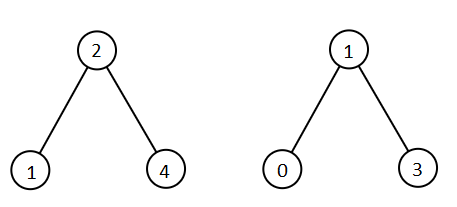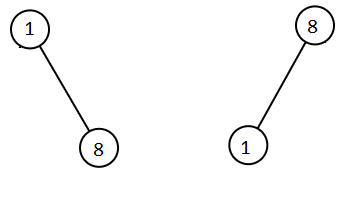-
Notifications
You must be signed in to change notification settings - Fork 1
Open
Labels
Description
All Elements in Two Binary Search Trees
Given two binary search trees root1 and root2.
Return a list containing all the integers from both trees sorted in ascending order.
Example 1:
Input: root1 = [2,1,4], root2 = [1,0,3]
Output: [0,1,1,2,3,4]
Example 2:
Input: root1 = [0,-10,10], root2 = [5,1,7,0,2]
Output: [-10,0,0,1,2,5,7,10]
Example 3:
Input: root1 = [], root2 = [5,1,7,0,2]
Output: [0,1,2,5,7]
Example 4:
Input: root1 = [0,-10,10], root2 = []
Output: [-10,0,10]
Example 5:
Input: root1 = [1,null,8], root2 = [8,1]
Output: [1,1,8,8]
Constraints:
- Each tree has at most
5000nodes. - Each node's value is between
[-10^5, 10^5].
/**
* Definition for a binary tree node.
* public class TreeNode {
* int val;
* TreeNode left;
* TreeNode right;
* TreeNode(int x) { val = x; }
* }
*/
class Solution {
List<Integer> result = new ArrayList<>();
public List<Integer> getAllElements(TreeNode root1, TreeNode root2) {
if(root1 == null && root2 == null)
return result;
helper(root1);
helper(root2);
Collections.sort(result);
return result;
}
private void helper(TreeNode root){
if(root == null)
return;
else {
result.add(root.val);
helper(root.left);
helper(root.right);
}
}
}
